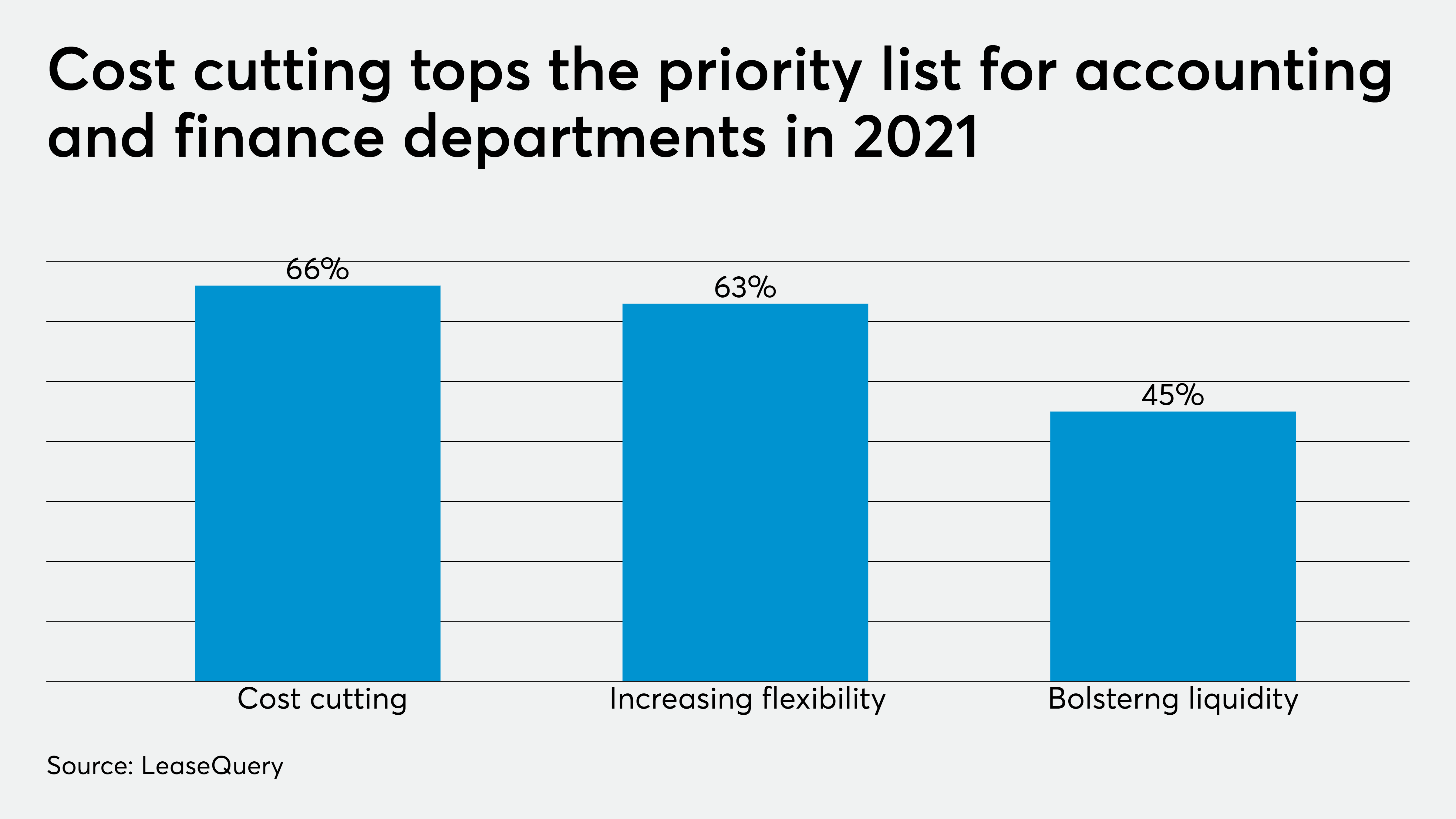Nearly one-third of companies are reducing their overall real estate footprint as a result of the COVID-19 pandemic, with 31 percent of companies renegotiating leases for more favorable terms, according to a new report.
The report, released Tuesday by LeaseQuery, a provider of lease-accounting software, found that finance leaders cited exit clauses (35 percent) and contract duration (29 percent) as the main reasons for negotiating lease terms for next year as the pandemic rages across the country, forcing many employees to work from home and local businesses to shut down.
For 66 percent of the more than 400 accounting and finance executives polled, the top priority is cutting costs, followed by increasing flexibility (63 percent) and bolstering liquidity (45 percent).
In the midst of the pandemic, accountants are dealing with a host of new accounting standards, including the leases standard, which the Financial Accounting Standards Board has delayed for private companies and nonprofits to give them an extra year to implement it. Nevertheless, public companies had already begun to implement the new standard before the outbreak of the pandemic and among the respondents polled by LeaeQuery, 85 percent said that implementing the new lease accounting standard remains the same or a greater priority, while 94 percent said financial reporting compliance remains the same or a greater priority.
For next year, the report predicts that optimization efforts in 2021 will help companies bolster their financial liquidity, which 45 percent of the survey respondents cited as a bigger priority following the pandemic. Enhancing data visibility (34 percent) and investing in technology (38 percent) are bigger priorities for next year due to the troubled economic environment. The impact of the economic downturn is especially evident in some of the hardest hit industries, with 92 percent of the restaurants polled and 54 percent of the retailers surveyed saying they asked for rent concessions as a direct result of the pandemic.
As for rightsizing, 31 percent of the survey respondents said they are reducing their overall real estate footprint now, and another 22 percent anticipate their lease portfolio will be smaller next year,
“For accounting and finance executives in 2020, real estate and leases are in the crosshairs for cost-cutting in response to the rise of the remote workforce, shifts in demand and declines in traditional commerce,” said LeaseQuery CEO George Azih in a statement. “Physical footprint decreases may be partially offset by increases in 2021, but it’s unlikely that real estate will return to pre-COVID 2019 levels. More than ever, companies are adopting lease renegotiation and rightsizing to generate cash flow and liquidity.”